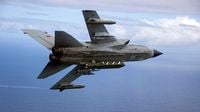Germany is at a crossroads regarding its military support for Ukraine, particularly in light of recent statements from prominent political figures and escalating tensions with Russia. On April 17, 2025, the Russian Foreign Ministry warned that any use of Taurus cruise missiles against Russian targets would be interpreted as Germany's direct involvement in the Ukraine war. This statement, delivered by Foreign Ministry spokesperson Maria Zakharova, indicated that a strike using these missiles would be seen as Germany fighting alongside Ukraine, with "all consequences that come with it," according to Russian news agencies.
The backdrop for this warning stems from comments made by Friedrich Merz, the leader of the Christian Democratic Union (CDU), who suggested the possibility of delivering Taurus missiles to Ukraine during a speech on April 13, 2025. Merz's proposal garnered significant attention and support, particularly from within the CDU and the Greens, as he highlighted that countries like the United Kingdom and France had already supplied Ukraine with similar weaponry.
CDU defense politician Roderich Kiesewetter backed Merz's stance, asserting that Taurus missiles could effectively destroy Russian supply lines. He dismissed concerns that Ukraine might use these missiles to attack Moscow, arguing that targeting supply routes was the primary objective. "It’s about supply routes. And that is a correct solution," Kiesewetter emphasized. He also noted that the delivery of Taurus missiles had been overdue for two years.
In contrast, the Social Democratic Party (SPD) has expressed caution regarding the delivery of these missiles. SPD General Secretary Matthias Miersch called for a unified decision between the Union and the SPD, emphasizing the need for a collaborative approach to avoid escalating tensions. Miersch stated that there is a clear resolution within the SPD against the delivery of Taurus missiles, citing concerns that such actions could lead to Germany becoming a belligerent party in the conflict.
During a recent interview, Miersch remarked, "I assume that we do not want to contribute to an escalation, that we do not want to become a party to the war. All the reasons that have led us not to deliver Taurus remain valid." This sentiment was echoed by SPD Co-Chair Lars Klingbeil, who underscored the importance of joint decisions in strengthening Ukraine.
Despite the SPD's reservations, the Ukrainian Ambassador to Germany, Oleksii Makeiev, welcomed Merz's remarks, stating, "Taurus is a great system, far superior to the Russian systems." Makeiev emphasized the necessity of military support for Ukraine, noting that it is in Europe’s interest to enhance its security, which includes supporting Ukraine against Russian aggression.
Merz has made it clear that any decision to supply the long-range Taurus missiles, which have a range of approximately 500 kilometers, would be contingent upon coordination with European NATO partners, particularly France and the UK. Both countries had previously sent similar cruise missiles to Ukraine, albeit with a shorter range of about 250 kilometers.
Amid this political tug-of-war, SPD foreign policy expert Michael Roth has also voiced support for the Taurus delivery, arguing that it could strengthen Ukraine's position in the ongoing conflict. Roth pointed out that Germany's European partners could enhance their support for Ukraine following a Taurus missile delivery.
Historically, the outgoing Chancellor Olaf Scholz had refrained from supplying Ukraine with Taurus missiles, fearing that such a move could lead Germany into direct conflict. The Taurus missiles' extended range poses the risk of striking deep within Russian territory, which has been a source of significant concern among German leaders.
However, many security experts believe that Ukraine would not misuse the weapons, as doing so could jeopardize their Western support. They argue that Ukraine has consistently adhered to agreements with its allies regarding military engagements.
As discussions continue, the implications of Merz's proposal and Russia's stern warning loom large over Germany's political landscape. The potential for escalation remains a pressing concern, with various factions within Germany's political sphere advocating for different approaches to military support for Ukraine.
In the coming weeks, the German government will need to navigate these complex dynamics carefully, balancing the need for military assistance to Ukraine against the risks of provoking further conflict with Russia. The outcome of this debate could significantly influence Germany's role in the ongoing war and its relationships with both Ukraine and Russia.

